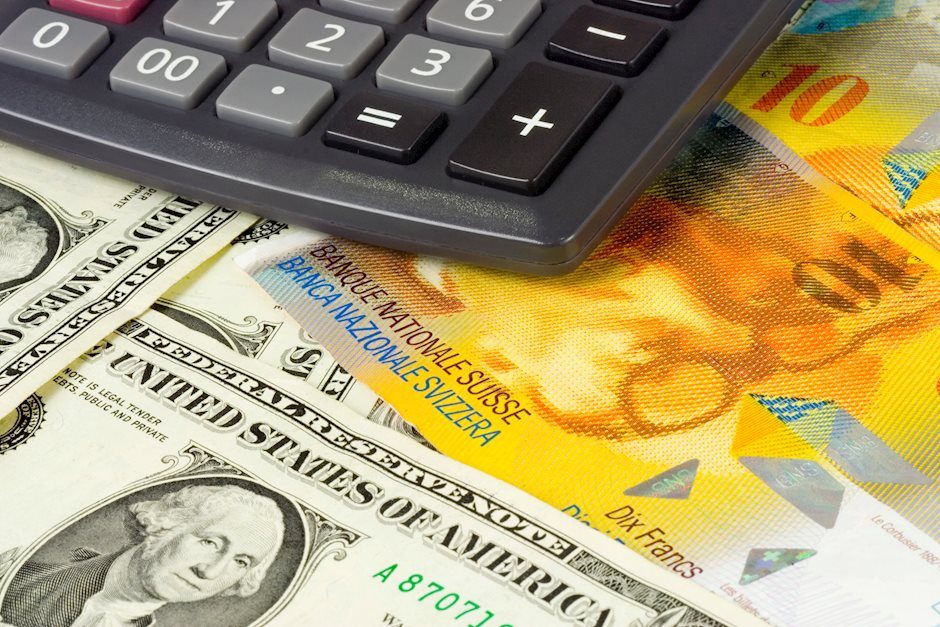USD/CHF softens below 0.8500 as escalating Middle East tensions boost safe-haven flows
- USD/CHF trades on a softer note near 0.8460 in Wednesday’s Asian session.
- Lower expectations of a deeper Fed rate cut might cap the pair’s downside.
- The rising geopolitical risks could lift the Swiss Franc.

The USD/CHF pair trades with mild losses around 0.8460 during the early European session on Wednesday. The escalating geopolitical tensions in the Middle East boost the safe-haven currency like the Swiss Franc (CHF). Traders will take more cues from the US ADP Employment Change data for September later on Wednesday.
Reduced bets for a 50 basis points (bps) Federal Reserve (Fed) rate cut in November could support the USD against the CHF. Fed Chair Jerome Powell noted on Monday that the US central bank intends to do what it takes to keep the economy "in solid shape," but it is not in a hurry and will lower its benchmark rate ‘over time.’
The US employment report on Friday will be in the spotlight. If the jobs report showed a worse-than-expected outcome, this could prompt the central bank to consider cutting rates deeper, which might exert some selling pressure on the USD.
Iran has launched hundreds of missiles toward Israel, and Prime Minister Benjamin Netanyahu vows to retaliate against Iran for a missile attack on Tuesday. US President Joe Biden reaffirmed US support for Israel after the missile attack, describing it as "defeated and ineffective." Increasing geopolitical tensions send investors into safe-haven assets like the CHF and create a headwind for USD/CHF.
Swiss Franc FAQs
The Swiss Franc (CHF) is Switzerland’s official currency. It is among the top ten most traded currencies globally, reaching volumes that well exceed the size of the Swiss economy. Its value is determined by the broad market sentiment, the country’s economic health or action taken by the Swiss National Bank (SNB), among other factors. Between 2011 and 2015, the Swiss Franc was pegged to the Euro (EUR). The peg was abruptly removed, resulting in a more than 20% increase in the Franc’s value, causing a turmoil in markets. Even though the peg isn’t in force anymore, CHF fortunes tend to be highly correlated with the Euro ones due to the high dependency of the Swiss economy on the neighboring Eurozone.
The Swiss Franc (CHF) is considered a safe-haven asset, or a currency that investors tend to buy in times of market stress. This is due to the perceived status of Switzerland in the world: a stable economy, a strong export sector, big central bank reserves or a longstanding political stance towards neutrality in global conflicts make the country’s currency a good choice for investors fleeing from risks. Turbulent times are likely to strengthen CHF value against other currencies that are seen as more risky to invest in.
The Swiss National Bank (SNB) meets four times a year – once every quarter, less than other major central banks – to decide on monetary policy. The bank aims for an annual inflation rate of less than 2%. When inflation is above target or forecasted to be above target in the foreseeable future, the bank will attempt to tame price growth by raising its policy rate. Higher interest rates are generally positive for the Swiss Franc (CHF) as they lead to higher yields, making the country a more attractive place for investors. On the contrary, lower interest rates tend to weaken CHF.
Macroeconomic data releases in Switzerland are key to assessing the state of the economy and can impact the Swiss Franc’s (CHF) valuation. The Swiss economy is broadly stable, but any sudden change in economic growth, inflation, current account or the central bank’s currency reserves have the potential to trigger moves in CHF. Generally, high economic growth, low unemployment and high confidence are good for CHF. Conversely, if economic data points to weakening momentum, CHF is likely to depreciate.
As a small and open economy, Switzerland is heavily dependent on the health of the neighboring Eurozone economies. The broader European Union is Switzerland’s main economic partner and a key political ally, so macroeconomic and monetary policy stability in the Eurozone is essential for Switzerland and, thus, for the Swiss Franc (CHF). With such dependency, some models suggest that the correlation between the fortunes of the Euro (EUR) and the CHF is more than 90%, or close to perfect.
Author

Lallalit Srijandorn
FXStreet
Lallalit Srijandorn is a Parisian at heart. She has lived in France since 2019 and now becomes a digital entrepreneur based in Paris and Bangkok.

















